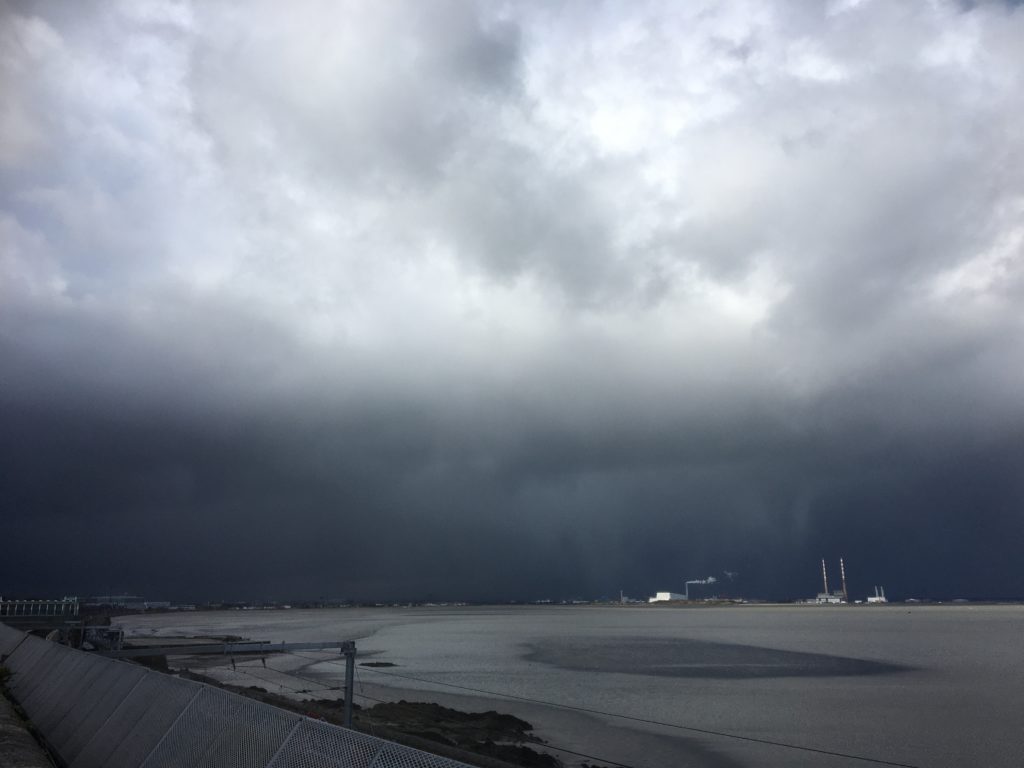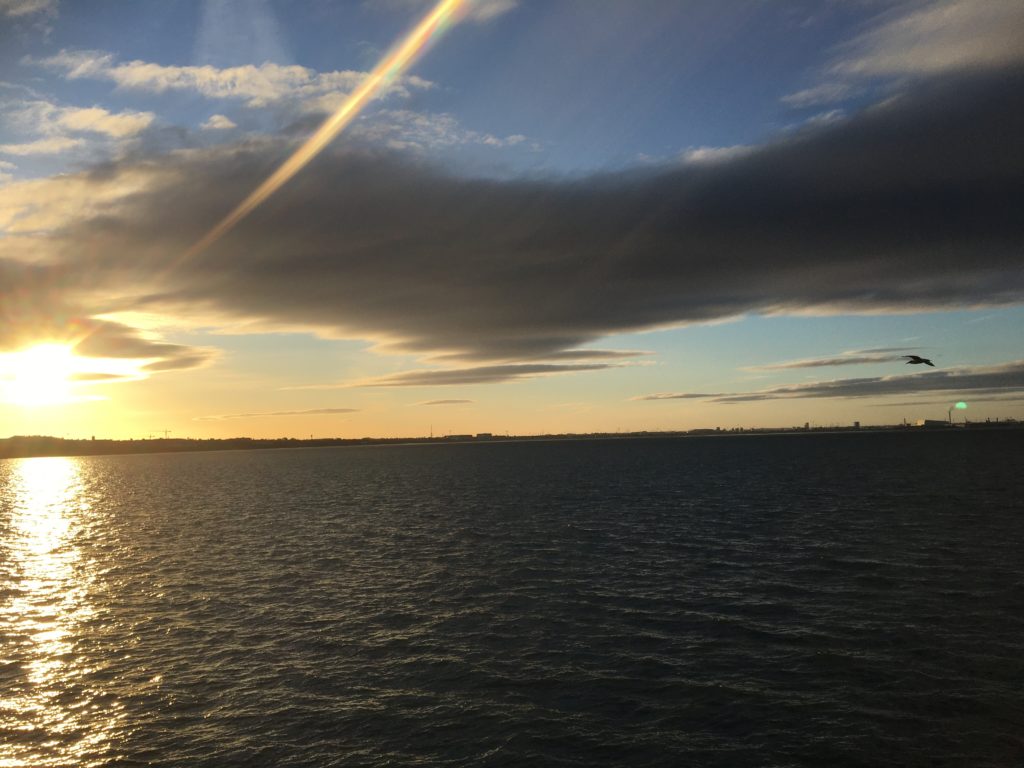The Dublin Bay changes everyday. It is no small miracle. There is enough excitement there to last several human lifetimes. Tide lapping the edges of the seawall, waterline so far out you can walk in the middle, white-capped swells or lake-like glass, moody green or pacific cerulean that tricks you into thinking it might even be warm. (It’s never warm.)
The Bay can be read like tea leaves, sketching the story of this land. Straight across from my usual perch loom the cliffs of Howth, the island flashing its archetypal beauty, craggy rock meeting bold sea.

At its heart, to my left, towards the city center, the port, container ships and lighthouses and smokestacks and cranes jutting up like so many nods to Ireland’s industry. An Irish friend comments on the strangeness of leaping from a largely agrarian economy to an advanced tech-based economy in a few decades, skipping through many stages of industrial development along the way. There aren’t that many smokestacks. Is this why the air is so fresh? Still, I’m told, when there are cranes in Dublin Bay, people stay, jobs on the way.
Worry about jobs seems much farther away if I face right on the Bay, where the moneyed suburbs of Dún Laoghaire and Dalkey parade their arching stone pier, sailboat-dotted marina, curving beaches that emerge and submerge with the changing tide. And then the mouth of the Bay, opening onto the oceans, the occasional ship a messenger from all water elsewhere, Wales shimmering just out of sight like a mirage, and the rest of the great continent beyond.

I’ve become a Dubliner this spring, leaving behind sleepy Galway to make my way in this storied city. I came for the faces—even when you can’t meet new people because of lockdown, you can watch them, catch snippets of their conversations as they pass by two meters away in the park.
There is a character in James Joyce’s Dubliners, Mr. Duffy, who yearns to break out of his own, largely self-imposed, lockdown. “He lived at a little distance from his body,” Joyce writes, “regarding his own acts with doubtful side-glances. He had an odd autobiographical habit which led him to compose in his mind from time to time a short sentence about himself containing a subject in the third person and a verb in the past tense.”
These days have been strange. Everything I came to Ireland for—theater, music, public conviviality—is dormant. By many accounts, it has been a tremendous disappointment. Yet—and this is no easy consolation, but rather a recognition—there is still so much to attend to, so much to see. I can’t help sometimes but feel myself a character like Duffy, ensconced in some larger story, carried forward by some larger yearning. Mr. Duffy walked. Mr. Duffy looked at the Bay. Mr. Duffy considered life’s feast.
It is an anti-spectacular approach to living, to be blown away by the changes in the Bay. To move through the lettered city and feel it haunted by those who have come before and those unknown others who people it now is to feel yourself a link in the human chain, a co-constructor of this place that, like Duffy, like the water, is always becoming.
